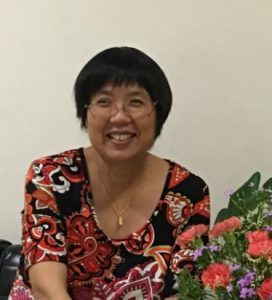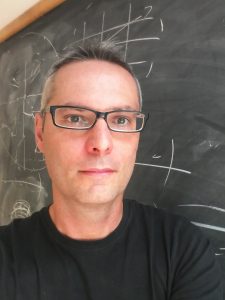 Prof. Rita Tse
Prof. Rita Tse
Director of School of Public Administration
Macao Polytechnic Institute
Title: Supporting heritage conservation using intelligent machines: Lessons learnt from Biblioteca Joanina de Coimbra —A UNESCO World Heritage.
Bio:
Rita Tse is a Professor in the Computing Program at the Macao Polytechnic Institute (MPI). She received the Math/Computer Science degree from UCLA and the PhD degree from Hull University in 2004. Dr. Tse serves as Director of the MPI School Public Administration, formerly School of Administration and Applied Sciences. Her current research interests include Ubiquitous Computing, Urban Sensing and Social Network-based Sensing.
Abstract:
Easy access to sensors and powerful micro-controllers enabled the design and deployment of a new generation of Machines that extend the IoT ecosystem beyond today’s cloud-dependent architecture. Advanced nodes are able to perform both sensing in many dimensions as well as cooperatively run complex machine learning algorithms and interpret multi-dimensional data. Applications of such technologies include environmental monitoring, safety, security, e-health, and more recently monitoring and conservation of fragile heritage artifacts and historical buildings providing precious information and data analytics to conservators, restores, and their institutions. The Macao Polytechnic Institute and a team of international collaborators designed and deployed a multi-level distributed monitoring system for the Biblioteca Joanina de Coimbra aimed at understanding the implication of heavy tourist traffic in the Coimbra Library and support the decision of the Library conservators and the University Leadership. In this talk I will describe the challenges, opportunities, and lessons learnt in designing and building and deploying a system that is now operating for over one year.
 Prof. Claudio Palazzi
Prof. Claudio Palazzi
Professor in Computer Science
University of Padua
Title: From e-gocentrism to a more cohesive (digital) society.
Bio:
Claudio E. Palazzi is a Professor in Computer Science at the Department of Mathematics of the University of Padua. He received his M.S. degree in Computer Science from UCLA in 2005, his Ph.D. degree in Computer Science from UniBO in 2006, and his Ph.D. degree in Computer Science from UCLA in 2007. His research interests are primarily focused on the design and analysis of communication protocols for wired/wireless networks, Internet architectures, and mobile users, with an emphasis on distributed sensing, mobile applications and multimedia entertainment. He is active in various technical program committees of the most prominent international conferences and is author of more than 160 papers, published in international conference proceedings, books, and journals.
Abstract:
Social networks and Internet technology are pushing us to share more and more information about ourselves for purely edonistic and egocentric purposes, while companies behind these services are by nature focused on just gaining profit out of it. Being (almost) the only use that has been made of the most pervasive communication and interaction system ever made, this represents an unacceptable waste of potential. In this talk, we provide an overview and some guidelines on how to exploit the opportunities cocooned by these technologies to improve the social cohesion of our (digital) society.

